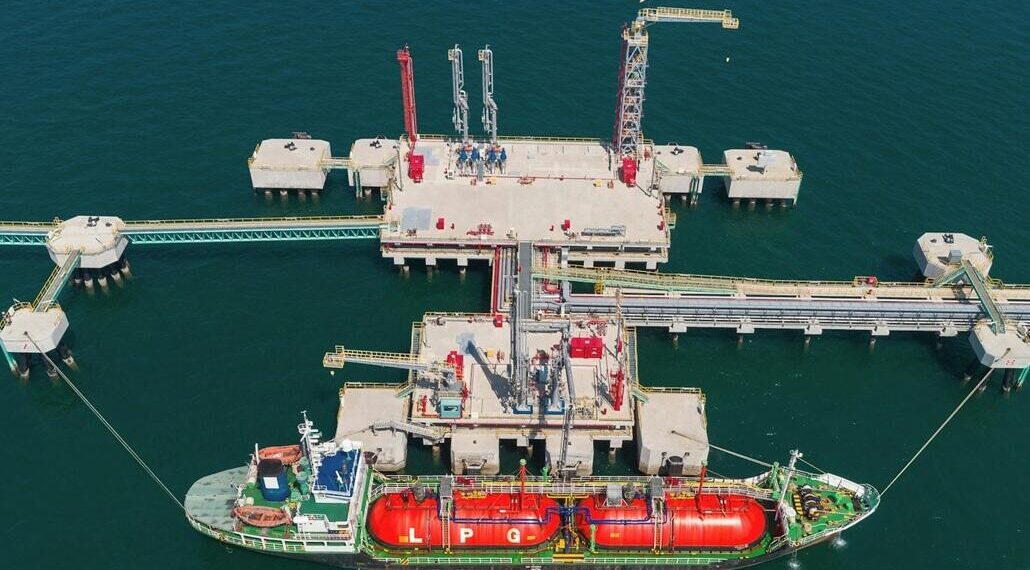Transport costs are a crucial factor for the future of the green e-methanol market in Europe
Green e-methanol is emerging as a promising alternative for hard-to-abate sectors like long-distance shipping and the chemical industry. As Europe intensifies efforts to cut greenhouse gas emissions, the demand for clean and sustainable fuels is increasing. While feedstocks and production costs often dominate the conversation, transportation and storage infrastructure are now recognized as critical factors influencing the green e-methanol market.
New research from LUT University sheds light on the cost dynamics of transporting e-methanol from solar-rich regions, such as Morocco and Chile, to energy-demanding European countries like Germany, Finland, and Spain. The study provides valuable insights into the competitiveness of imports versus domestic production, highlighting the importance of transport costs in shaping the future of the green e-methanol market.
Solar-Rich Regions: A Competitive Edge
The study, titled “Analysis of green e-methanol supply costs: Domestic production in Europe versus imports via pipeline and sea shipping,” highlights significant differences in production costs across various regions. Germany and Finland face higher production costs compared to Spain, Morocco, and Chile due to the availability of high-quality solar resources in the latter countries.
“By 2050, e-methanol could be produced for as little as €50-55 ($51.5-56.7)/MWh (€279-308/tMeOH) in optimal locations such as northern Chile, Morocco, and Spain,” the study projects. Solar PV costs are expected to decline faster than wind energy costs, widening the cost gap further and making solar-rich regions more attractive for production.
Spain’s excellent solar potential ensures highly competitive local production, while imports from Morocco and Chile remain cost-effective for Central and Northern Europe. For Germany, importing e-methanol could lead to savings of up to 22%, while Finland could see savings of up to 37%.
Transportation Costs: Pipeline vs Shipping
The research provides a detailed analysis of transportation costs for green e-methanol imports between 2030 and 2050, comparing pipelines and shipping.
- Pipelines are cost-effective for distances up to 420-475 km, with costs reaching €3.6/MWh (€20/tMeOH) for longer distances.
- Shipping becomes more economical beyond 475 km, costing around €2.1/MWh (€12/tMeOH) over 1000 km.
By 2030, importing e-methanol from Morocco to Europe could cost €113-208/MWh (€631-1161/tMeOH), while imports from Chile may range between €106-165/MWh (€592-921/tMeOH). These costs are expected to decline significantly over time, strengthening the case for imports from solar-rich regions.
Finland’s Unique Advantage: Bio-CO2
The study also examines the potential benefits of using sustainable CO2 sources for e-methanol production. Finland, for instance, could leverage bio-CO2 from its pulp and paper industry to reduce production costs by 7-14%. While this approach makes domestic production attractive in the short term, imports from Morocco and Chile may remain more cost-effective in the long run due to lower solar electricity costs.
Additionally, Finland’s access to abundant wind energy, land availability, and bio-CO2 resources positions it as a potential exporter of green e-methanol. This could offer Nordic countries a competitive advantage in the global e-methanol market.
Methanol: A Key Energy Carrier
Methanol’s versatility and lower transportation costs compared to hydrogen make it a critical component of the future energy transition. The report underscores that methanol’s ability to be converted into gasoline, dimethyl ether, and various bulk chemicals gives it an edge in establishing a Methanol Economy as part of the broader Power-to-X concept.
Unlike hydrogen, which involves higher transportation costs due to liquefaction or compression, e-methanol is easier and more economical to transport globally. This positions methanol as a vital energy carrier for the future, alongside electricity and hydrogen.
A Sustainable and Collaborative Future
The findings highlight the need for collaboration between sun-rich regions and energy-demanding European nations to optimize green e-methanol production and supply chains. With continued investment in renewable energy and transportation infrastructure, the green e-methanol market is poised to play a pivotal role in the global energy transition.
Whether a country imports, exports, or becomes self-sufficient in its e-methanol supply will depend largely on the cost of renewable electricity and access to sustainable CO2 sources. Sun-rich regions are expected to emerge as key suppliers of bulk e-methanol, enhancing global energy security and sustainability.


































